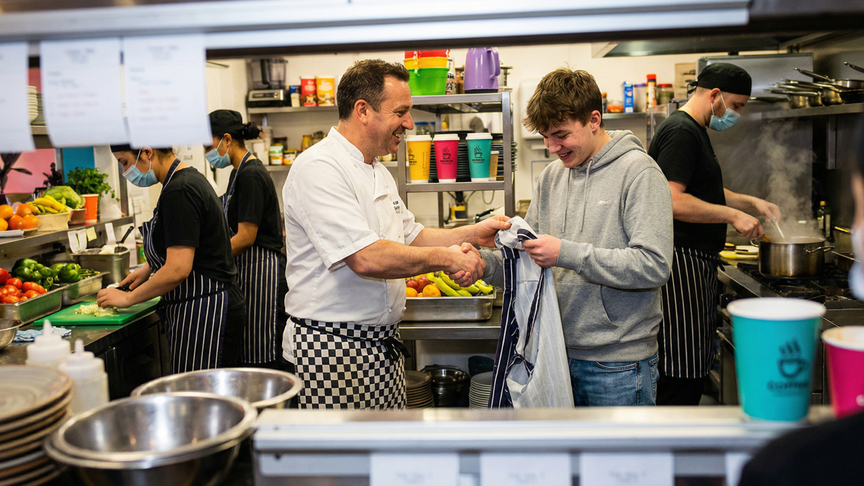It’s beginning to look a lot like Black Friday’s hold on the UK is loosening.
In just over a decade, the US import that once dominated our retail calendar appears to be losing cultural momentum.
While this is happening in a year marked by sluggish retail growth, rising living costs and changing work patterns, the economy isn’t the only force behind Britain’s Black Friday fatigue.
According to PwC, just 46% of shoppers plan to take part this year, down from 53% last year. The British Retail Consortium (BRC) reports a similar cooling trend, with October sales slowing and consumers delaying purchases due to uncertainty rather than excitement.
It’s too early to suggest the UK has abandoned Black Friday entirely. But it’s increasingly clear we’re no longer captivated by it.
So, what does that mean for the small businesses still investing time, staff and preparation into the festive weekend?
Consumer Hesitation
Data shows participation falling even as spend per shopper rises slightly. Fewer shoppers, but higher-value purchases, suggests necessity rather than enthusiasm.
Research from Which? adds to the picture: across 175 products tracked from May 2024 to May 2025, not a single one was at its cheapest on Black Friday 2024.
BRC/KPMG data shows widespread “purchase delay” behaviour – customers waiting for value that may never arrive. Layered onto a cost-of-living crisis, endless discount cycles, mistrust of inflated-then-reduced pricing and a shift toward resale and sustainability, and the decline in Black Friday’s power becomes easier to understand. The novelty, scarcity and trust that once made the event feel essential simply no longer exists.
The Effort–Reward Gap for Small Businesses
It means the demand patterns small businesses once relied on are no longer predictable – and the work behind the scenes is no longer guaranteed to pay off.
Even as consumer interest wanes, Small Businesses (SMEs) still face the same operational pressures: longer hours, heavier customer-service loads, fulfilment stress, stock management and increased returns, all of which require significant coordination from small teams.
The drop in participation also creates a tricky dynamic: while money is still being spent, it’s coming from fewer people, and their behaviour is getting harder to forecast. October’s delayed purchasing shows customers are waiting without necessarily intending to spend more.
For SMEs, this can lead to overstaffing, overplanning and overspending for a “peak” that never fully materialises. When teams work at full stretch without seeing results, morale dips. And if staff begin December already depleted, January-to-March turnover pressures can rise too.
Key Elements to Rethink Ahead of Black Friday 2026
- Staffing Strategy
“All hands on deck” assumes high traffic – an assumption that no longer holds. SMEs risk overscheduling teams for unpredictable demand.
- Employer Reputation
Black Friday exposes how a business operates under pressure. Staff remember whether leadership was organised or chaotic, which can have broader implications for retention, morale and loyalty.
- Profit Vs Workforce Cost
When overtime, holiday pay and operational pressure exceed sales, the event becomes a liability. SMEs can mitigate this by scaling promotions, spreading demand into November or opting out entirely where margins don’t justify the strain.
How smart SMEs are adapting
Many small businesses aren’t abandoning Black Friday – they’re redesigning it. Some independent retailers are following in the footsteps of brands like Lush, which publicly rejects Black Friday, or The Ordinary, which runs its calmer month-long “Slowvember” event.
Others run smaller, controlled campaigns. Retailers such as Oliver Bonas introduce early, selective offers rather than concentrating everything on one weekend, reducing fulfilment pressure.
Prioritising the employee experience is an option too. Some SMEs opt for shorter shifts, guaranteed breaks and time off in lieu.
Running longer, smaller promotions can be another helpful, lower-risk tactic for small businesses. Etsy sellers often run early November “shop small” promotions, and brands like Hotel Chocolat launch gifting offers early to avoid bottlenecks.
Transparent communication can be helpful too – particularly in terms of reducing stress and improving engagement. Research from CIPD and the Chartered Management Institute shows that employees cope better when leaders explain why workloads or strategies are changing.
The new era of Black Friday for SMEs
Black Friday hasn’t vanished – but its influence in the UK is fading. Shoppers are more selective and less convinced by the hype.
For SMEs, the question is no longer: How do we maximise Black Friday? It’s: Is Black Friday still serving us?
The businesses that thrive will be the ones who design peak periods around sustainability, clarity and a healthier experience for their teams – not the noise of a fading retail tradition.























